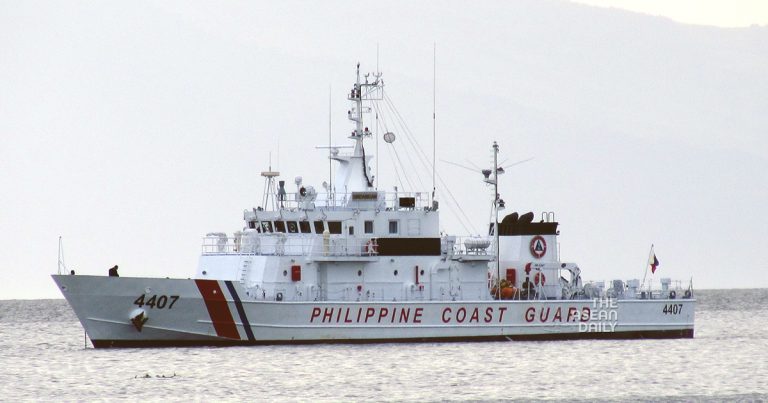8-8-2023 (MANILA) In a resolute response to mounting threats of encirclement and blockades by Chinese vessels, the Filipino government has unequivocally pledged to stand its ground and never abandon the strategic Ayungin Shoal.
Speaking out against the backdrop of China’s latest attempt to disrupt a resupply mission, Jonathan Malaya, Assistant Director General of the National Security Council, made an emphatic declaration. “For the record, we will never abandon Ayungin Shoal. We are committed to Ayungin Shoal,” stated Malaya during a press briefing convened by the National Task Force on the West Philippine Sea at the Department of Foreign Affairs (DFA).
The recent incident involved the firing of a water cannon by Chinese forces at a Philippine Navy vessel escorting civilian boats engaged in delivering provisions to the BRP Sierra Madre outpost. The move was met with a swift response as the DFA issued yet another diplomatic note against China in condemnation of the Ayungin incident.
Prompted by this escalating aggression, President Marcos convened a military command conference to strategize comprehensive counteractions against China’s continued provocations.
Malaya, reflecting on the incident that unfolded on August 5, emphasized that the action spoke volumes. “The incident speaks for itself,” he said, highlighting the audacity of China’s move.
The National Task Force on the West Philippine Sea, led by National Security Adviser Eduardo Año, promptly issued a statement denouncing China’s latest act of aggression.
Malaya surmised that the incident likely aimed at testing the Philippines’ unwavering resolve to safeguard its territorial integrity. “If you wish to speculate [on the reasons for the incident], they are probably looking for weakness in the Philippine position or are trying to gauge our commitment to supply our troops in the shoal,” Malaya deliberated.
Assuring the nation’s citizens, he reaffirmed, “And we are here precisely to reassure the Filipino people that as directed by our President, we are consistent… that we will not lose an inch of our territory.”
Joining Malaya at the press briefing were Col. Medel Aguilar, spokesman for the Armed Forces of the Philippines (AFP), Commodore Jay Tarriela of the Philippine Coast Guard (PCG), and DFA spokesperson Ma. Teresita Daza.
Malaya drew attention to the increased presence of Chinese Coast Guard (CCG) vessels, often moving in tandem with the Chinese maritime militia. He underscored that this coordinated action undeniably demonstrated the collaboration between these vessels, suggesting that the Chinese Coast Guard and Navy were acting in unison.
“The increased number of Chinese Coast Guard (CCG) vessels, movement in concert with the Chinese maritime militia, effectively proves to the whole world that they are instruments of the Chinese Coast Guard, or the Chinese Navy, the Chinese government,” Malaya articulated.
Highlighting the gravity of the situation, he detailed how Chinese Maritime Militia vessels seemed to be monitoring Chinese vessels within Philippine waters. He described the orchestrated nature of the incident, whereby Philippine ships were outnumbered by a formidable Chinese presence. “This looks like a blockade of the Ayungin Shoal,” Malaya remarked, illustrating the intensity of the standoff.
As the dispute unfolds, the AFP contends that it has every right to conduct Rotation and Reprovisioning (RORE) missions to Ayungin Shoal. Aguilar clarified the purpose behind these missions, stating, “When we do resupply missions, we are exercising our rights under international law.”
He underlined the legal standing of such operations, asserting that resupply efforts were essential to sustain the Philippine-commissioned Navy vessel stationed at Ayungin Shoal, ensuring the provision of vital resources for military personnel stationed there.
The Philippines remains steadfast in asserting its territorial rights and sovereignty, a sentiment reinforced by President Marcos. While seeking diplomatic engagement with China, the country remains resolute in upholding international law, including the United Nations Convention on the Law of the Sea (UNCLOS).




